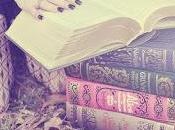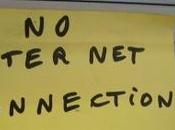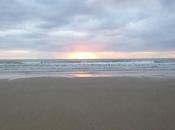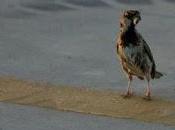
no, non sto parlando di me, ma del libro di stefania rossini, cioè stefy di naturalmente stefy. ho avuto il piacere di conoscerla virtualmente un paio di mesi fa e mi sono subito interessata al suo libro, che parla della decrescita e come vivere senza l'ossessione di dover comprare tanto e tutto nuovo.
no, i'm not talking about myself, but the book by stefania rossini, aka stefy of naturalmente stefy. i had the pleasure of meeting her virtually a couple of months ago and i was immediately drawn to her book, which is about degrowth and how to live without the obsession of having to buy a lot and buy it new.
certo, ci sono parecchi libri e blog che parlando della decrescita (cioè, il contrario dello sviluppo industriale, quindi di consumare meno, autoprodurre il più possibile e di evitare il circolo vizioso di comprare, accumulare e buttare) e girano moltissime informazioni su come autoprodurre le cose e trucchi "della nonna" semplici e naturali sui facebook, pinterest e praticamente dovunque. ma quello che mi ha molto colpito di questo libro è la sua concezione della decrescita che poi abbraccia tanti aspetti della vita.
sure, there are a lot of books and blogs about downshifting (in a nutshell, the opposite of industrial development and growth, so consuming less, making as much as possible on your own, and avoiding the cycle of buying, accumulating and throwing away) and there's a lot of information on self-producing things and tricks from the more simple and natural good old days on facebook, pinterest and basically anywhere else. but what really struck me about this book is the author's concept of degrowth which spans many aspects of life.

chi sceglie una vita in decrescita lo può fare per diversi motivi: per spendere di meno, per salvaguardare l'ambiente, per motivi sociali, ecc. ma quello che propone stefania è come un ritorno ad una vita più naturale e in contatto con la vita, come si faceva una volta. questo non vuole mica dire che uno poi deve rinunciare a tutti i lussi di oggi giorno, ma solo a quelli che non servono per una vita più semplice. stefania scrive la stessa cosa che penso da tempo, che ci sono dei valori e delle modalità di fare le cose che si sono sviluppati in questi millenni e le persone hanno sempre vissuto così. ma il progresso così veloce di questi ultimi decenni è bastato per distruggere gran parte di questi valori e queste conoscenze, ma senza migliorare la qualità della nostra vita, solo riempendo le nostre case, le discariche e l'ambiente di roba inutile e spostando i valori della gente su questi bene materiali invece di certi altri valori più importanti.
those who choose to downshift do so for many different reasons: to spend less, to protect the environment, for social reasons, etc. but what stefania proposes is a return to a more natural and in-touch life, as was the norm years ago. this does not mean that one must give up all of today's luxuries, but only those which we do not absolutely need in order to live a more simple life. stefania writes the same thing that i've been thinking for a while, that there are values and ways of doing things that have developed over millennia and people have always lived this way. but the lightning-fast progress made over the past few decades has been enough to destroy a huge part of these values and this knowledge, but without improving the quality of our life, just filling out homes, landfills and the environment with useless stuff and shifting people's values to these materials objects rather than other more important values.

le nostre scelte di acquisti sono molto più importanti di quello che forse pensiamo. stefania consiglia di pensarci con consapevolezza prima di comprare un prodotto in un negozio, se vogliamo "votare" gli ideali e modi di vivere che rappresentano quel prodotto. e anche per questo che tratta soprattutto l'autoproduzione nel suo libro, come alternativa al convincimento che si deve per forza comprare tutto e al bisogno di votare le multinazionali. si pone la domanda, perché autoprodurre invece di comprare e poi fornisce due pagine di risposte, che comprendono la salute, l'ambiente, il portafoglio, il tempo, le capacità e la soddisfazione personale.
our buying choices are much more important that what we might think. stefania advises us to think consciously before buying something in a store, if we want to "vote" for the ideals and ways of life that that particularly product represents. this is another reason why she write much about self-production in her book, as an alternative to the belief that we have to buy everything and the need to voite for multinationals. she aks why one ought to self-produce instead of buying, and then supplies two pages' worth of reasons having to do with our health, environment, wallet, time, abilities and personal satisfaction.

l'autrice spiega la sua "politica aziendale casalinga": se i suoi avi non avevano un prodotto, vuol dire che se ne può fare a meno. certo, uno può anche scegliere di usarlo, ma non è necessario. il suo esempio: il burro di karité, mentre una sostanza meravigliosa e di tanti usi, non viene dall'italia, quindi se scegli di usarlo, si deve far fare un viaggio lungo ed inquinante per arrivarci. ma le creme si facevano nei tempi dei nonni anche senza il burro di karité perché c'era l'ugualmente meraviglioso olio d'oliva nativa di questa zona. devo dire, non ci avevo pensato tanto prima, ma mi sembra una riflessione azzeccatissima.
the author defines her own "household-business policy": if her ancestors didn't have a product, it means that she can do without it. sure, one can also choose to use it, but it's not totally necessary. her example: shea butter, while a wonderful substance that can be used for many things, does not come from italy, so if you decide to use it, it needs to take a long, polluting trip to get here. but our ancestors still made their own creams without shea butter because there was the equally wonderful olive oil which is native to this area. i have to say, i hadn't really thought of it that way before, and it seems spot on.
ho trovato tutto il concetto dietro il libro assai interessante, ma ora arriviamo al contenuto, cioè consigli ed idee su come si può vivere meglio comprando e spendendo meno. i primi due capitolo trattano come produrre i detersivi per la pulizia della casa e prodotti di cosmesi. il bello di questo tipo di ricetta è che ci sono tantissimi modi per farli. anche se ho letto e provato parecchie ricette di questo genere (comprese alcune di pulizie creative e questi libri sul bicarbonato, aceto e limoni), stefania ha proposto molte nuove per me che proverò sicuramente.
i found the entire concept behind the book fascinating, but now let's get to the main content, the advice and ideas of how to live better buying and spending less. the first two chapters deal with how to make DIY home cleaning and body care products. the great thing about this type of recipe is that there are loads of ways to make them. even though i've already read and tried out lots of this type of recipe (including those from pulizie creative and these books on baking soda, vinegar and lemon), stefania has proposed many that are new to me that i'll definitely try out.

dopo queste parti viene un capitolo breve sul recupero e riutilizzo dei vestiti che chiunque può fare. (anche se non ha fatto menziona di refashioning, cioè il modificare dei vestiti inutilizzati per crearne nuovi, una mia passione, ma questo sarà perché ci vuole una certa tecnica per farlo.) poi c'è una raccolta di ricette per mangiare. confesso di essere stata scettica di questa parte, chiedendomi che c'entrava con questo libro. presto ho capito: le ricette proposte sono spesso versioni alternative ai classici o ricette per niente tradizionali che utilizzano prodotti locali o avanzi, a volte con consigli per i bambini. che dire, ne voglio provare un sacco!
after these two parts comes a brief chapter on upcycling and reusing clothes that anyone can do. (although there is no mention of refashiong, modifying unused clothing to create new ones, a love of mine, but this is probably because one needs to have a certain knowledge to do it.) then there's a collection of food recipes. i admit that i was a bit skeptical about this part, wondering what it had to do with this book. but i soon understood: the proposed recipes are often alternative versions of classics or recipes that are not at all traditional, using local products or leftovers, sometimes giving advice for children. i want to try out a bunch of them!
poi arriva una sezione breve sul baratto. mi ha molto interessato perché non l'ho mai provato online perché mi sembrava troppo complicato e improbabile trovare qualcuno che vorrebbe quello che ho io e che ha quello che vorrei io. invece, sembra che è un mondo molto interessante che funziona davvero. sto già compilando un elenco di cose che vorrei cominciare a proporre in baratto e vedere quello che si riesce a fare.
then there's a quick section on bartering. i found this quite interesting because i'd never tried it online because it seemed too complicated and unlikely that i'd find someone who'd want what i have and that had what i want. however, it sounds like a very interesting practice that actually does work. i'm already putting together a list of things i'd like to start proposing on online barter sites and see what happens.

il sesto capitolo è quello che ho trovato più affascinante di tutti: fare l'orto urbano o sul balcone. ho già parecchie piante ed erbe in vasi sui miei balconi e anche una piccola compostiera, quindi pensavo di già sapere un pochino su come crescere le piante. ma qui ci sono tanti consigli per un principiante su come e quando inseminare, concimare naturalmente, inaffiare correttamente e che cosa sono le consociazioni (quali piante mettere vicino per aiutare la crescita e la difesa).
the sixth chapter is the one that i found the most fascinating: making an urban or balcony garden. i already have quite a few potted plants and herbs on my balconies and also a small composter, so i thought i already knew a little bit about how to grow plants. but here there is lots of information for a beginner on how and when to plant, naturally fertilize, correctly water and what consociations are (which plants to place near each other to help each other's growth and defence).
dopo una breve sezione "di tutto un po'" (altre ricette e trucchi fai-da-te per la casa) viene un capito molto carino sui giochi per i bambini, perché la felicità è gratis e non c'è bisogno di sborsare tanti soldi per divertirsi! un'altro capitolo dà consigli su come fare la spesa senza spendere più del necessario e un'altro ancora parla di una passione dell'autrice, l'uncinetto.
after a short "miscellaneous" section (other recipes and DIY tricks for the home) is a nice chapter on games for children, because happiness is free and there's no need to shell out lots of money to have fun! another chapter gives ideas on how to do the shopping without spending more than necessary and yet another is about the author's hobby, crocheting.

una cosa che forse vi chiedete: come si fa a spendere davvero solo €5 al giorno con una famiglia di cinque persone? stefania mi ha spiegato che il titolo non è stata una scelta sua e non sostiene mai che sia davvero così, anche se lei dice di spendere ancora di meno a volte. e questi €5 non comprendono, ovviamente, quello che chiama nell'ultimo capitolo "le cose difficili", tipo le bollette, il mutuo, la macchina. ma comunque in quella parte fornisce ancora altri consigli su come risparmiare quello che si può su queste spese più grosse di cui non si può fare a meno.
one thing you may be asking yourself: is it really possible to spend just €5 per day for a family of five people? stefania explained to me that the title wasn't her choice and never says that you can really get by with just €5, even though she claims that at times she even spends less than that. and these €5 obviously don't include what she calls in the last chapter "the difficult things," such as bills, mortgage, car. but in any case, in that section she provides even more ideas on how to save whatever you can on these bigger exenses that we generally can't do without.

l'ho fatto un po' lungo, ma ho trovato questo libro davvero una fonte di tantissima informazione utilissima e anche una proposta di un modo di vivere affascinante e gratificante. se vi interessa, guardate il blog di stefania, naturalmente stefy, e ordinate il suo libro. è anche disponibile in spagnolo e da settembre lo sarà anche in tedesco.
i guess i wrote quite a bit, but i truly did find this book a source of a lot of very useful information and also a proposal of a fascinating and gratifying way of life. if you're interested, take a look at stefania's blog, naturalmente stefy, and order her book (in italian). it's also available in spanish and in september will also be in german.
tutte le foto di questo post sono state prese dalla pagina facebook di stefania.all the images in this post were taken from stefania's facebook page.
--------------------------------------------------------------------------------------------------------
edit: una coincidenza molto buffa, anche stefania ha scritto dei miei assorbenti e la mia storia con i prodotti lavabili proprio nello stesso momento che ho scritto di lei! le menti che pensano allo stesso modo...! :)
edit: a funny coincidence, stefania herself wrote about my cloth pads and my story with cloth products in the same moment that i wrote about her! great minds think alike! ;)






